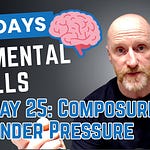Within field of psychology, Locus of Control is considered an important aspect of personality and behaviour. Julian Rotter was a behaviourist but he also understood the role of cognition in learning and development and originally developed the concept in the 1950s. Locus of Control refers to a person’s perception about the underlying main causes of events in their life. Or, more simply, it is how you believe that your destiny is determined or controlled by you or by external forces such as fate, God, or powerful others.
Rotter held the view that behaviour was largely guided by environmental "reinforcements," or rewards and punishments, and that through contingencies such as rewards and punishments, individuals come to hold beliefs about what causes their actions. These beliefs, in turn, guide what kinds of attitudes and behaviours people adopt. Rotter stated that where we place that locus will either reinforce or punish our actions. An internal locus of control will lead to a reinforcement of that behaviour, and the behaviour will continue. An external locus of control, on the other hand, will cause the behaviour to extinguish – why would we continue to try if the outcome is outside of our control?
So we can see how locus of control is a factor in the development of growth and fixed mindset.
Mental Skills Basics Course
Suffering stress and anxiety is not a prerequisite for success in self-employment–there's a better way. Mental skills provide you with the means of coping effectively with difficulty and achieving your goals. I created the Mental Skills Basics Course to introduce business leaders, self-employed individuals, freelancers, consultants, and small business owners to the psychological and emotional skills associated with success.










